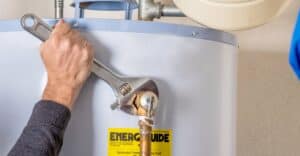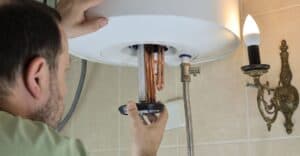A water heater is one of the most critical components in a home plumbing system. The main purpose of installing a water heater in your house is to provide hot water for all your household needs including showering, washing dishes, general cleaning etc. Water heaters are classified according to their functional designs and also according to the type of fuel that they use. In terms of functional design, we have three main types of water heaters; conventional storage, tankless, and heat pump water heaters. And regarding the type of fuel they use, water heaters are categorized as electrical, gas powered, solar, or hybrid. As more people opt for gas powered appliances over electric models, many San Diego gas piping companies are now offering installation, repair, and maintenance services for all gas water heaters in their areas of operation. We will not be able to discuss all types of water heaters here due to space limitations. We will only focus on the three most common types of water heaters in terms of functional design. Notably, the three different types of water heaters discussed below can use any of the aforementioned energy sources.
Conventional Storage
According to industry reports, conventional storage water heaters are the most popular models in the United States. One of the main reasons for their popularity is that conventional storage water heaters are the cheapest models in the market today. As the second part of the name suggests, these types of water heaters come with a storage tank or reservoir for holding the heated water. The main problem with conventional storage models is that they lose a lot of energy in standby heat loss from the store water. Modern models come with highly insulated storage tanks to reduce standby heat loss but they are still more inefficient when compared to the tankless models.
Tankless Water Heaters
As the name implies, these water heaters lack a hot water storage tank. As such, they are not subject to standby heat loss and are hence more energy efficient than conventional storage water heaters. Tankless water heaters heat water when needed and are hence also called demand-type or instantaneous water heaters. The main reason why conventional storage water heaters are more popular than tankless models is because the latter are more expensive to buy than the former. However, die to the high energy savings in the tankless models; they end up being the cheaper option in the long run and they last longer than conventional storage models.
Heat Pump Water Heaters
Heat pump water heaters use a reverse-refrigeration heating technique to absorb heat from the surrounding environment for heating water. Heat pump water heaters are usually powered by electricity and they feature a storage tank like the conventional storage models. They use the absorbed thermal energy to heat water and are hence more efficient than conventional storage water heaters. Although they have higher purchase and installation costs than the conventional storage models, heat pump water heaters are still more cost-effective because they have lower operating costs, which offset the initial price margins.

.svg)

